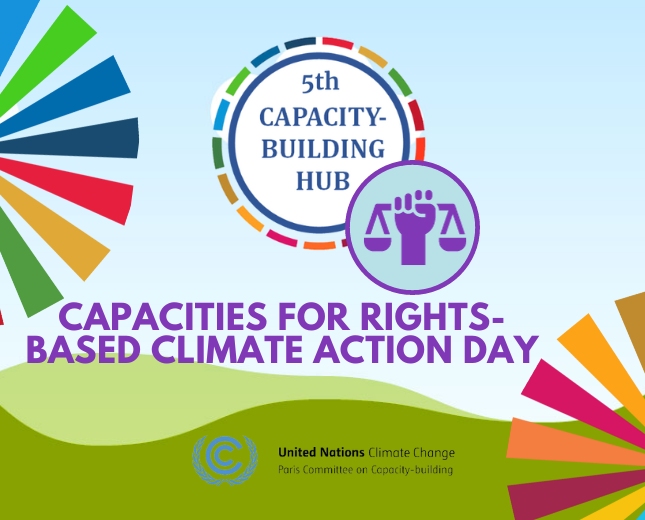Recording
Organizers
This event was hosted by African Centre for Climate Actions and Rural Development Initiative
Background
African Centre for Climate Actions and Rural Development (ACCARD) Initiative is legally and nationally registered non-governmental organization (NGO), under the Nigerian Corporate Affairs Commission with registration number CAC/IT/No 132800, to promote and advocate pro-poor, climate friendly and equity-based responses to climate change and sustainable development. Our aspiration is to ensure that people-centered response mechanisms are accorded desirable attention and relevance as climate change and environmental issues are increasingly mainstreamed into national and global poverty reduction and sustainable development strategies and actions.
The event provided useful insights and solutions into the global impact of climate change which has continued to pose a significant threat to life (both human and animals) and livelihood. Despite their regional peculiarities, which was previously used in assessing vulnerability as well as responses, the effects on climate change depends largely on existing infrastructural development and policies in managing, mitigating, and adapting to the environment impacts. These threats are evident and seem to affect everyone and everything, with devastating effects leading to loss of biodiversity, property, potential disease outbreaks, human and animal lives. Sadly, they are predominately felt in rural communities with women and young girls - as the most vulnerable population group, and contributing to rural emigration, unemployment, poverty, disease, and food insecurity in Nigeria. It is therefore imperative to increase the participation of indigenous people and rural community in climate action and leadership as well as policies, in the search for solutions and accelerating green development at all levels.
This will be in accordance with COP24 Katowice report that provided a bottom-up approach to climate change action and governance inclusively with grassroot participation. Undoubtedly, the COVID-19 pandemic has been reported to worsen the problems of climate change and impacts on national economies, as well as green development efforts, particularly in Africa. It should be noted that most African countries including rich nations, despite mitigative economic measures, are already facing both economic and development challenges, in addition to the Russia- Ukraine war. For example, a comparable incident of recent climate change-induced flooding with devastating impacts on modern development across Europe and Asia, will most likely have severe consequences for Africa and particularly, Nigeria due to poor infrastructural development.
In addition, other climate events such as wildfire, drought and other extreme weather conditions reported across the globe, are indications of the need for severe climate emergency actions. For example, catastrophic flooding was recently reported in Western Germany, Belgium and China, despite their development and climate readiness that was built over time. An estimated $1.5b USD has been proposed to fix damaged railway network in Germany, which also recorded the loss of 180 human lives, is more than the budget of many Africa countries put together. We need to start building local climate change capacities for local stakeholders including collaborative actions to tackle climate change is the reason the event is organised.
Objectives
The objectives of the event among others were to:
-
Promote gender inclusivity and mainstreaming in addressing environmental and/or climate change at the grassroots level.
-
Enhance indigenous and local people participation (including gender mainstreaming) in climate actions and solutions.
-
Develop a bottom-up and cross-boundary strategy to climate management, alternative livelihood preservation and grassroot climate action and awareness.
-
Receive local community inputs and voices in climate action.
-
Increase indigenous people and local communities (IPLCs) inclusivity in climate action.
Structure
This event was an open mic dialogue session. It required all the expert speakers to speak to a question for 10 minutes each. Thereafter the floor was open for questions and have the expert speaker’s response and became an open interaction between participants and speakers.
Speakers
|
Name
|
Affiliation/Organization
|
|
Elizabeth Jeiyol
|
Gender and Environmental Risk Reduction Initiative (GERI)
|
|
Micheal Terungwa
|
Global Initiative for Food Security and Ecological Preservation (GIFSEP)
|
|
Vivian Maduekwe
|
Global Alliance for the Future of Food
|
|
Grace Ananda
|
Habitat for Humanity International, Africa Area Office
|
|
Innocent Antoine Houedji
|
Youth Initiative for Land in Africa
|
|
Robert Ross
|
University of Colorado in Boulder
|
Moderator
Freeman Elohor Oluowo, African Centre for Climate Actions and Rural Development Initiative (ACCARD)
Key outcomes
-
Emphasized on the need for gender action plans at the grassroots level, considering the unique challenges faced by women in communities.
-
Recognized the importance of a bottom-up approach in implementing gender-responsive climate policies, acknowledging the cultural and socio-cultural norms that influence awareness and participation at the sub-national level.
-
Advocated for inclusive participation in climate solutions, stressing the involvement of diverse stakeholders, traditional leaders, and community-based organizations, with a focus on recognizing and incorporating the experiences of women in decision-making processes.
